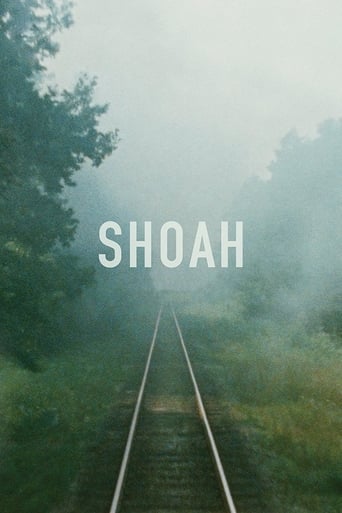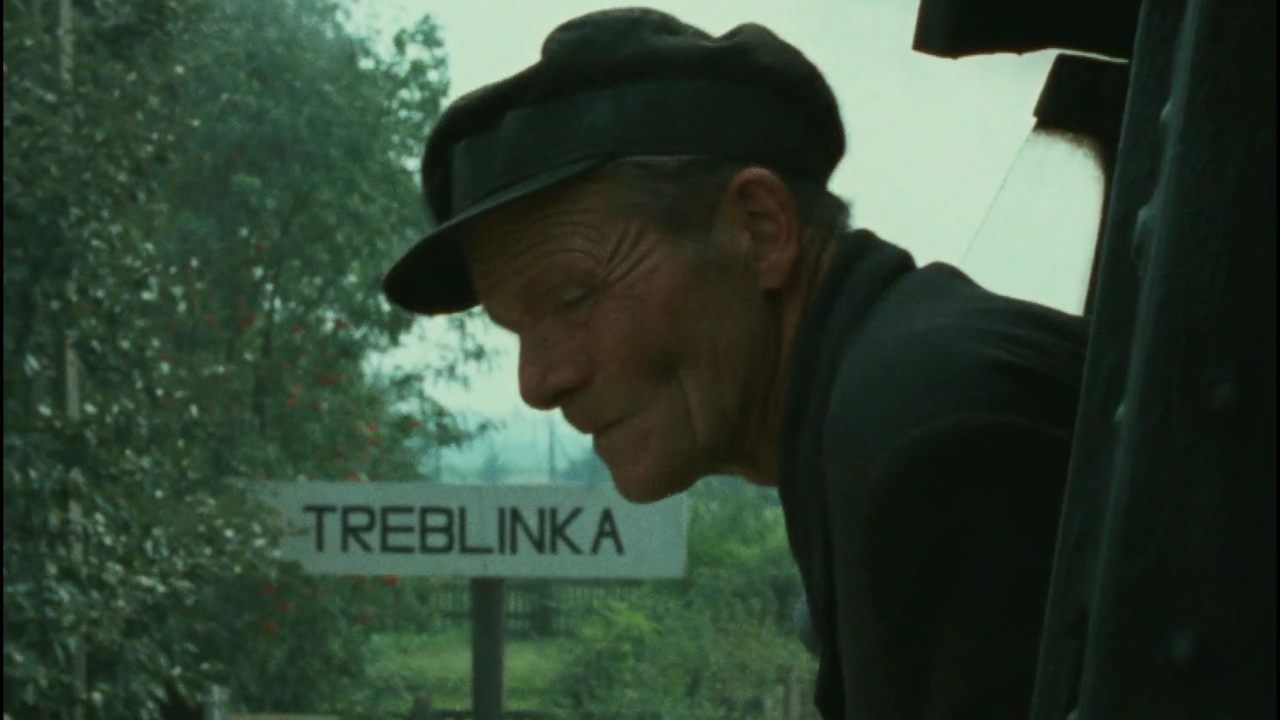saraccan
Now it's commonly used in the Hebrew language to refer to the 1940's ethnocide of the Jewish people. Different thing about Shoah is that, they didn't use any archive footage at all. It's all done through interviews with real survivors, German/allied soldiers that worked in the camps and other people who lived to tell their stories. You could literally make a separate movie from every different story you hear in this documentary.Holocaust is not an unknown topic to a lot of people but hearing some of these gruesome details from the people who experienced it first hand, gives you a completely new perspective.
simon-page-1
I have just recently watched this film in two parts, over two weeks. Yes, it is long. So what? I find it unbelievable that people can complain about the length of this film. Did you not know how long the film was before watching it? Oh dear.. did you get a 'bit bored' by the history of the mass extinction of the Jews? Did you run out of popcorn? The whole point of the film is to document the horror and also the complicity of others, not just the Nazis. The slow pace of the film gives us time to reflect on the misery and horror. The cold bleakness of the Polish landscape and the timeless quality only enhances and evokes feelings of depression and misery. The film has had a profound effect on me. It has made me angry and sad. It has made me want to tell other people. It is doing it's job, and will continue to do so as long as it exists and people watch it.
treywillwest
To me "Shoah" represents an inversion of the other canonically revered Holocaust documentary, Resnais's ''Night and Fog". Resnais's short film has always made me a tad uncomfortable. Of course watching it, with its excerpts from films made by the Nazis documenting their own murders, is a powerful, even unforgettable experience. Yet, I always thought that Resnais was in a way blackmailing his audience into being "moved" by his film. In showing images of the murders, he is not only displaying the victims in ways the victims cannot give their consent towards, he is also trying to make the audience say they have "seen" and understood the horror. This, it seems to me, is Resnais attempting to put his audience (and himself) in a position of "safe understanding" of the holocaust, like "been there, seen that". The very sense of horror provoked by the film nonetheless protects the viewer from any sense of incomprehension. It provides an easily defined experience of revulsion.Shoah, shot entirely in the "present" of people who lived through the Holocaust as prisoners, Nazis, or witnesses, operates on a more poetic level. In a way it is not even a documentary on the Holocaust itself but a documentary about coping with the memory of disaster in the present. The disaster cannot be shown, and it cannot really be described. The stories one hears in the film are very moving, but part of what is so powerful about them is the way the speakers struggle to articulate their experience or convey their emotions. At times, Lanzmann's interviews even seem a bit sadistic, like he is forcing the speakers to reveal their pain, but I think part of what is great about Shoah is that it has no pretension to being a "healing'' work. Rather, in pointing to how any attempt to understand history, and particularly its disasters, can only be partially successful, partially remembered, Lanzmann does not shield himself, or the viewers of the film from the sense that the helplessness of the Other always strips the self of its own sense of empowerment, its ability to speak to or help or understand the Other.On a historical level, the most interesting point for me was how much time and effort the Nazis devoted to the cover up of their crimes. I always had an image in my mind of the Nazi elite, and indeed many of the true-believing populace, being so ideologically fanatical that they didn't care who found out about the death camps because they truly believed they were doing good by "purifying" humanity. But everything here indicates that the regime's greatest fear was that anyone would find concrete evidence of the genocide. What at times almost operates as a kind of sick black comedy, however, is how much effort went into concealing the mass murders, and yet how utterly blatant it is that everyone knew what was happening to those herded to the camps.I'm a bit amused by critics who lavish praise on the film by saying that, despite its subject matter, it is ultimately "life affirming" and "humane." It seems to me that they have to say this if they are to laud the film, or they themselves will not seem "humane". I, for one, do not see it as, in any way whatsoever, a "warm" work. The Nazis interviewed in the film all seem like what they were- bureaucrats or yes-men who did their jobs to make their living. In Nazi Germany, mass-murder was an industry where many people made livelihoods. The most terrifying presences in the whole film are resistance fighters whose greatest joy in life was killing Nazis. One still feels an insatiable hatred towards humanity coming from them. One of the men's statement, "Lick my heart, you'd die of poison," is, for me, one of the greatest lines in all cinema, and the words I would use to summarize the experience of watching "Shoah." I must express my one and only displeasure with the film. No where in its nine and a half hours does Lanzmann interview or even mention any of the non-Jewish categories of people targeted for extermination by the Nazis. Watching this, you wouldn't even know that Roma, homosexual, and physically and mentally handicapped people were also slaughtered in the camps. These omissions fit nicely with Lanzmann's Zionist ideology, but that only underscores, I think, that this is a great work, but not a humanitarian one.
holopone
Shoah is in many ways the mother of all insightful films about the Holocaust. Instead of relying on the usual images, Lanzman's film takes us to the people who suffered, survived, and to those who made the Holocaust possible. It is all too easily forgotten that ordinary people, often believing that they were doing the right thing, contributed to the greatest act of systematic murder ever recorded. This film reminds us of that. In a time when Nazis are once again big business in the main stream, it is more important than ever to introduce young audiences to the reality of the Holocaust. Shoah is probably the best introduction to the topic ever made. This is one of those rare films that documents history without burying or sensationalizing it. It is a great film because it leaves us with questions that we still have to face.


 AD
AD



